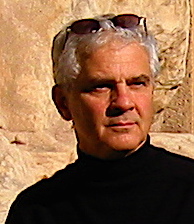A Quote by Antony Blinken
The Iran nuclear deal, the so-called JCPOA, was very effective in cutting off all of the pathways that Iran then had to produce fissile material for a nuclear weapon. And we know that that agreement was working.
Related Quotes
Congress has a limited role in regards to the nuclear agreement with Iran. We do have a review statute that was enacted into law where we review Iran's compliance with the agreement, and we have certain requirements on the President to keep us informed. What we have seen so far is that Iran is in compliance with the nuclear part of the agreement, but certainly has violated non-nuclear issues.
We support any deal that denies Iran nuclear weapons, that has a continuous and robust inspection mechanism and that has snap-back provisions in case Iran violates the agreement. Our concern is that Iran will use the income it receives as a result of the lifting of the nuclear sanctions in order to fund its nefarious activities in the region.
What we said publicly is that we know that Saddam Hussein has chemical weapons, he's used them; we know about his biological weapons programs; and in the nuclear equation, left to his own devices, with no fissile material, by the end of the decade, he'll have a nuclear weapon. But if fissile material is provided to Saddam Hussein, he'll have a nuclear weapon within a year, so I'd say the year is the outside timetable.
I have studied the details, listened to Ohioans on all sides of this issue, and consulted with nuclear experts. This deal is not about trusting the Iranian regime, but instead working with our allies on comprehensive, verifiable restrictions to block Iran's pathways to a nuclear bomb without precipitating another war in the Middle East.









































